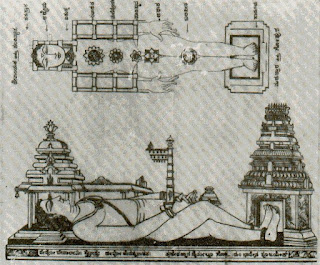Everyone talks about balanced diet .lets start with knowing what is balanced diet .
Diet plays most imp role in controlling whole mechanism of the body. nutrients found in food help our body to function properly. a diet that contains adequate amounts of all the necessary nutrients required for healthy growth and activity is called balanced diet.
Requirement of different nutrients is different for everyone. So we must know that what should be adequate for our body to function properly.
Foods can be grouped on the basis of the nutrients contained in them and their functions in the body. Based on their functions they can be divided into three groups
· Energy giving foods
· Body building foods
· Protective foods
Energy giving food
Energy is required by the body to do work and to perform all the physiological functions of the body. Carbohydrates like rice wheat, potato and fats like ghee and oil belong to this group.
Body building food
Our body needs to grow. Due to constant wear and tear in the body, new cells have to be built to repair the damaged parts. Proteins like milk, eggs, meat, cheese and dal help in body building.
Protective foods
Vitamins and minerals belong to this group. Absence of these constituents cause deficiency diseases like rickets, beriberi etc. Vegetables and fruit are rich in vitamins and minerals.
Following table Shows the three food groups and their sources
Food group according to function | Major nutrient | Food containing the nutrient |
Energy giving | carbohydrate and Fat | Cereals like rice and wheat Starches like potato. Fat-ghee and oil Sugar |
Body building | Protein | Milk Meat-Mutton, chiken, fish Egg white Pulses, like dals,gram,soya bean peas |
Protective | Minerals,Vitamins | Vegetables specially green leafy vegetables like spinach, cabbage and Dietry fibre such as brinjal, beans and fruits |
Food Group | Main Nutrients |
Cereals, grains and products (6-7 servings per day), rice wheat flour, maize, rice flakes, puffed rice and maida. | Energy, protein, invisible fat,Vitamin B, B2, folic acid, iron and fibre. |
Pulses (one serving per day) legumes, Bengal gram, black gram, green gram, red gram, rajmah, soyabean. | Energy, protein, invisible fats,Vitamin B B2, folic acid, calcium, iron, fibre. |
Milk and meat products (2 servings per day), milk, skimmed milk and cheese. | Protein, fat, Vitamin B2, calcium. |
Meat and chicken - liver, fish, eggs, meat (one serving per day). | Protein, fat and Vitamin B2. |
Fruits apples, guava, tomato ripe, papaya, orange, sweet lime, water melon. | Fibre, Vitamin C, carotenoids. |
Vegetables (green leafy). Amarnath, spinach, coriander leaves, mustard leaves. | Invisible fat carotenoids, Vitamin B2, folic acid, iron and calcium fibre. |
Other vegetables: carrot, brinjal, lady finger, capsicum, beans, onion, cauliflower. | Carotenoids, folic acid, calcium fibre. |
Fat and sugar: Fat - 3(tsp/day) butter, ghee, hydrogenated oils, cooking oils like ground nut, mustard and coconut oil. | Energy, fats and essential fatty acids. |
Sugar (2 tablespoon/day) sugar and jaggery. | Energy. |
A balanced diet and physical exercise has a major role in achieving long healthy life.
1. It helps in controlling body weight, heart rate and BP.
2. Increase in exercise capacity and muscle performance.
3. Improves blood sugar, lowers harmful cholesterol and triglycerides and increases the beneficial HDL cholesterol.
4. Produces mental and physical relaxation.
Some Greek Philosopher said "Leave your drugs in the chemist's pot if you can heal the patient with food."
it was a introduction to healthy diet .I will get back soon to tell a different diets for diseases . So that by modifying your diet you can recover faster .
Take care n stay healthy
Anubha verma
Dietitian











Comments
Post a Comment
please enter true details, otherwise do not waste your time and our space